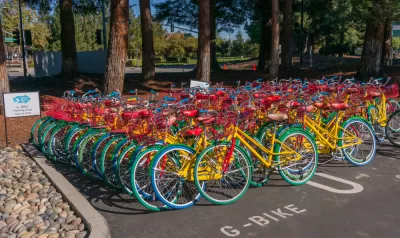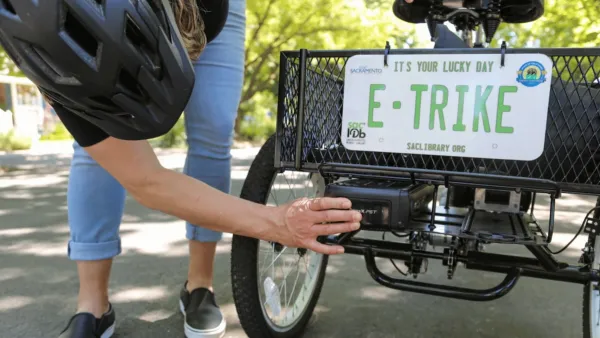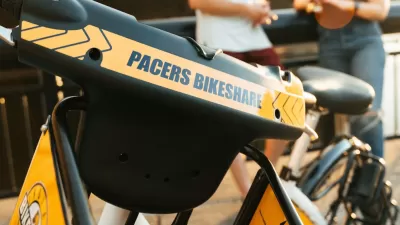NACTO complains that unsanctioned bikeshares are dangerous and inequitable, others counter these companies provide a valuable service that the market has shown a demand for.

The National Association of City Transportation Officials (NACTO) released a statement recently condemning what it calls "Rogue Bike Sharing Services," saying that "fly-by-night operations put the public at risk." They complain that these systems aren't integrated enough with city transit and that they may provide low quality bikes. The organization voiced worries that, rather than supporting bike transit for the long term, these organizations were just looking for a buy-out in order to turn a quick profit.
But there are dissenting voices."When spared the expensive docking stations, the argument goes, cities can instead devote their money to bike infrastructure, in the end getting more riders access to cycling at a cheaper cost," Kelsey E. Thomas writes for Next City.
If these bike share companies are out to make a quick buck and that gives a few people the opportunity to ride a bike rather than walk or drive, the outcome isn’t all that bad. Further, these organizations are exploring a new model. Spin in Austin uses a system without docking stations.NACTO cares, but maybe we shouldn't.
FULL STORY: Are “Rogue” Bike-Share Systems Bad for Cities?

Planetizen Federal Action Tracker
A weekly monitor of how Trump’s orders and actions are impacting planners and planning in America.

Chicago’s Ghost Rails
Just beneath the surface of the modern city lie the remnants of its expansive early 20th-century streetcar system.

San Antonio and Austin are Fusing Into one Massive Megaregion
The region spanning the two central Texas cities is growing fast, posing challenges for local infrastructure and water supplies.

Since Zion's Shuttles Went Electric “The Smog is Gone”
Visitors to Zion National Park can enjoy the canyon via the nation’s first fully electric park shuttle system.

Trump Distributing DOT Safety Funds at 1/10 Rate of Biden
Funds for Safe Streets and other transportation safety and equity programs are being held up by administrative reviews and conflicts with the Trump administration’s priorities.

German Cities Subsidize Taxis for Women Amid Wave of Violence
Free or low-cost taxi rides can help women navigate cities more safely, but critics say the programs don't address the root causes of violence against women.
Urban Design for Planners 1: Software Tools
This six-course series explores essential urban design concepts using open source software and equips planners with the tools they need to participate fully in the urban design process.
Planning for Universal Design
Learn the tools for implementing Universal Design in planning regulations.
planning NEXT
Appalachian Highlands Housing Partners
Mpact (founded as Rail~Volution)
City of Camden Redevelopment Agency
City of Astoria
City of Portland
City of Laramie





























